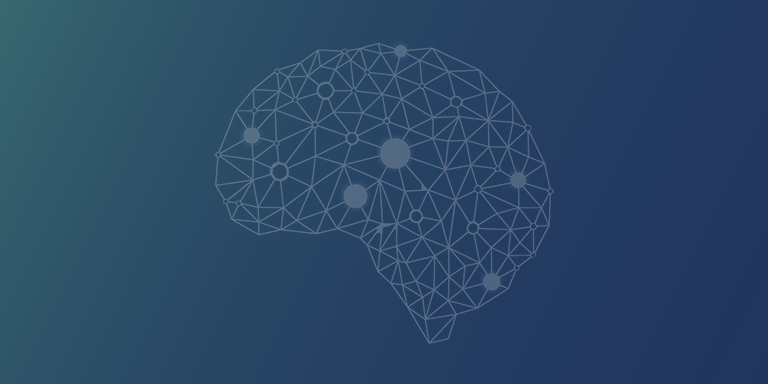
NEUROSCIENCE
& ARTIFICIAL INTELLIGENCE
MECHANISMS, PERSPECTIVES & CONSEQUENCES
23-24 May 2024, Bordeaux

NEUROSCIENCE
& ARTIFICIAL INTELLIGENCE
MECHANISMS, PERSPECTIVES & CONSEQUENCES
23-24 May 2024, Bordeaux
Foreword
Artificial intelligence (AI), which is based on artificial neural networks with learning capabilities initially inspired by the functioning of the nervous system, has made significant progress in recent decades, and is playing an increasingly important role in technological development in a wide range of fields (human-machine interaction in many industries: telephony and office automation, home automation, automobile, defence, health, etc.).
Neuroscience has long been a key driver of advances in artificial intelligence (AI). Conversely, the models used in AI are used to understand how the brain works. However, the structure of the networks and the learning mechanisms currently used remain far from the principles observed experimentally. Developments of artificial systems towards forms more inspired by biology could improve the capacity of algorithms. On the other hand, a better understanding of the network mechanisms involved in AI could benefit both their development but also a better understanding of the functioning of the human brain. Neuroscience can therefore play an important role in accelerating the progress of AI and realizing its vast potential. However, the development of AI-type capabilities is also likely to raise serious ethical and societal issues, impacting on human creativity, economic growth, employment, the place of machines in society as well as their potential autonomy.
The first day of this meeting will be dedicated to the study of the network mechanisms involved in artificial networks and the underlying learning mechanisms. The second day will be dedicated to the societal consequences and ethical perspectives of the development of AI in our societies.
Arthur Leblois, Emmanuel Procyk & Nicolas Rougier, coordinators
Program
23 May 2024
9:00 – 10:00 · Conference
Omri Barak (Technion Israel Institute of Technology, Israel)
Learning from learning systems
10:00 – 10:30 · Coffee break
10:30 – 12:30 · SESSION 1 – Learning modalities in artificial neural networks
Rufin VanRullen (Artificial & Natural Intelligence Toulouse Institute, CerCo, CNRS UMR 5549, Toulouse)
Multimodal deep learning through a Global Workspace
Alexis Dubreuil (Institute of Neurodegenerative Diseases, CNRS, UMR 5293, University of Bordeaux, Bordeaux)
Reverse-engineering artificial neural networks for investigating principles of neural computations
Dan Goodman (University College of London, United Kingdom)
Structural and functional modularity in neural networks
Chris Summerfield (Human Information Processing Lab, University of Oxford, United Kingdom)
Zero-shot navigation with deep RL
12:30 – 14:00 · Lunch
13:00 – 14:00 · Poster session
14:00 – 15:30 · SESSION 2 – Confronting artificial networks to cognitive and neural data
Jean-Rémi King (Laboratoire des systèmes perceptifs, ENS, Paris)
Language in the brain and algorithms
Anthony Strock (Menon Lab, Stanford, Palo Alto, USA)
Understanding the origins of human behavioral deficits by developing AI that fails
Anne Collins (Psychology Department, UC Berkeley, USA)
Insights from cognitive sciences into fast and flexible learning
15:30 – 16:00 · Coffee break
16:00 – 17:00 · Roundtable discussion about network mechanisms
24 May 2024
9:00 – 10:00 · Alfred Fessard Lecture
Introduced by Rufin VanRullen (CerCo, CNRS UMR 5549, Toulouse)
Simon Thorpe (CerCo, CNRS UMR 5549, Toulouse)
Neuroscience and AI – What can AI learn from how the brain computes?
10:00 – 10:30 · Coffee break
10:30 – 12:30 · Roundtable discussion about ethics
Chaired by Cédric Brun (Institute of Neurodegenerative Diseases, CNRS, UMR 5293, University of Bordeaux, Bordeaux)
Contributors
Michèle Barbier (European projects Manager, H2020 SimCardioTest and EITHealth in EurHeart, Inria Sophia Antipolis Méditerrannée)
Raja Chatila (Professor of Artificial Intelligence, Robotics and Ethics at ISIR, Sorbonne University, Paris)
Romain Sidobre (Ethical and Responsible AI operational coordinator at Orange, Issy-les-Moulineaux)
12:30 – 14:00 · Lunch
13:00 – 14:00 · Poster session
13:30 – 14:00 · General Assembly of the French Neuroscience Society
14:00 – 16:00 · Roundtable discussion about societal perspectives
Chaired by Mehdi Khamassi (ISIR, CNRS UMR 7222, Sorbonne University, Paris)
Contributors
Chloé Clavel (Professor and researcher at Télécom Paris, Paris)
Simon Thorpe (Research Director at CerCo, CNRS UMR 5549, Toulouse)
Natacha Vas-Deyres (Associate Professor of literature, essayist specialising in science fiction, Bordeaux)
16:00 – 16:15 · Closing remarks
Registration & abstract submission
Abstract submission deadline: 30 April 2024
Registration deadline: 7 May 2024, 5 p.m. CET
Please note that the maximum capacity for this meeting is 150 participants (first-come, first-served basis).
Not yet member of the French Neuroscience Society? Join us now and benefit from reduced registration fees at the meeting.
Early-bird registration until 31 March 2024 included
Student/ Post-doc member
90 €
Academic member
150 €
Non member
300 €
Late registration starting 1st April 2024 until 7 May 2024
Student/ Post-doc member
120 €
Academic member
180 €
Non member
300 €
VAT not applicable, article 293B of the CGI
Registration fees include access to the conference, lunches and coffee breaks.
Online registration is over. For any inquiry about registration, please contact us








